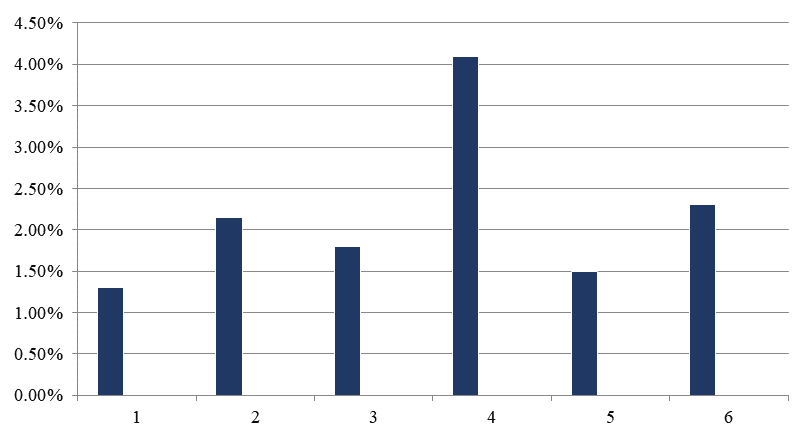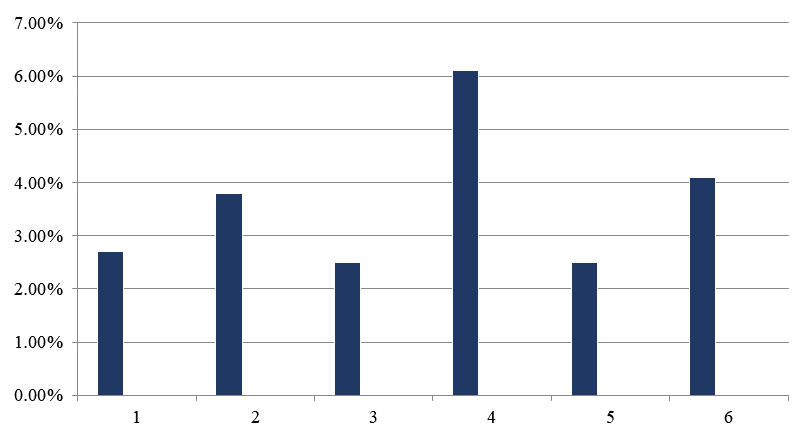Abstract
The issues addressed in this study analyze the frequency of participation in cultural activities of students in rural areas, as well as possible directions for increasing access to culture in the rural community. In accordance with the educational policy documents, we emphasize the fact that every person has the right to participate in cultural life, to have access to culture, has the right to freedom of artistic expression, respect for cultural identity, the right to identify with a cultural community and its tangible or intangible heritage, the right to cultural, religious and linguistic diversity, the protection of creative activities, the right to intellectual property, the right to education and the right to carry out cultural activities freely. In rural areas, strategies to stimulate access to culture for students could be based on the following domains: traditions and oral expressions - language as their main vector; performing arts; social practices, games and festive events; knowledge and practices related to nature and the universe; traditional handicrafts and traditional crafts; These factors of sustainable development reaffirm the importance of local and regional identity and specificity, which implies the need to protect the cultural heritage and awareness of its value by the community.
Keywords: Culture, cultural consumption, cultural activities, education, psychosocial skills
Introduction
"The educational act is established as a privileged relationship, as an exemplary form of intersubjective mediation. It means talking, looking at ourselves, feeling the way we are or want to be” (Cucoș, 2008, p. 31).
A classic meaning of culture is presented by authors such as: Bocoș and Jucan (2008), Roman and Balaș (2010) who define culture as that complex that includes knowledge, faith, art, law, morality, the habits and other abilities and habituations that man has acquired as a member of a society.
Cultural heritage is the total of absolute and universal goods and values that have been difficult to achieve by some privileged peoples or individuals and that are passed down from one generation to another. At the heart of education are values, which are the heart of culture.
"The current debates on the role of education and school in contemporary society, have generated developments and shifts in the theoretical space of educational sciences" (Păun & Potolea, 2002, p. 13).
Cultural activities aim at initiating children into practicing an active, responsible behavior, capable of tolerance and respect for self and others, aware of rights and duties, free and open to other cultures (Kelemen, 2014).
In this sense, we identify a number of objectives in cultural activities:
• Broadening and completing the cultural horizon, enriching knowledge in certain fields
• Synthesizing knowledge for students with learning gaps
• Ensuring the framework for practicing and cultivating different general and specific skills for manifesting talents
• Creating the conditions for professional completion or initiation in a new activity
• Modeling integrative-social attitudes by assimilating contemporary values of civic involvement, peace, mutual aid, tolerance and a healthy lifestyle.
Every culture must ensure that educators become masters of certain areas of knowledge, acquiring certain values and mastering certain businesses. It is beneficial for them to develop intellectually, morally, socially, emotionally and civically (Gardner, 2005).
Problem Statement
The whole educational process must protect and promote cultural dialogue, diversity, mutual knowledge, tolerance, empathy, hospitality and social integration.
However, there are some blockages that may occur in front of them:
Poverty can block access to arts education not only because of lack of financial access to opportunities but also because of the social, emotional, and intellectual barriers that can occur as a result of living in poverty.
Geographic distance is a distinguishing feature of rural areas that impedes access to art education, including the investment of time for travel, weather obstacles, reduced professional development opportunities, and lack of transportation.
Another challenge that emerged in interviews was a lack of funding for arts education, especially in rural areas. This was framed in terms of the arts being cut when funding is low; not replacing positions when people retire; and innovative new ideas being linked to seed funds that could disappear.
Research Questions
The present study was based on the hypothesis that providing meaningful learning situations for fourth graders through access to cultural values facilitates the development of interest in authentic values, well-being, knowledge and creative expression of culture.
Purpose of the Study
The content sample aimed at stimulating access to culture through cultural activities that had as objectives: the development of interest in authentic values and the development of knowledge and creative expression of culture.
The sample of subjects consisted of twenty students, of both sexes, aged between 9 and 11 years, from rural areas, from an educational institution in Arad County.
The proposed design is pseudo-experimental. The psycho-pedagogical experiment was implemented over a period of 6 months.
The initial step consisted in applying a questionnaire to highlight the degree of participation in cultural activities, as shown in Table 1:
The formative stage consisted in the application of the intervention program. The activities, as shown in Table 2, involved: organizing thematic exhibitions reflecting aspects of life and history in order to establish a profile museum, facilitating the manifestation of local theatrical and cinematographic arts in local cultural institutions and founding a musical art ensemble and a specific repertoire, to represent a music creation workshop.
The final stage involved the re-application of the questionnaire, in order to quantify and analyze the answers and the changes that took place after participating in organized cultural activities, so that it can be measured in what parameters took place the changes that were required to be tested in the hypothesis.
Research Methods
The research methods are:
• Systematic observation
• Questionnaire survey
• Psycho-pedagogical experiment
Findings


As shown in Figures 1 and 2, education brings cultural changes which may result in many transitions and alterations in the society in many forms. This may be observed in every aspects of human culture like variations in norms of values and thinking modes, changes in material culture, ideas, family relations, political culture, patterns of administration at the local, state, regional and national level, involvement in social activities, change in abilities and behavioral traits of personnel; in short in every aspects of human activity.
Student benefits: improved learning capacity in other subjects, such as language and mathematics; higher levels of achievement for underserved students; enhanced creative, critical thinking and problem solving skills; reduced emotional and behavioral problems; enhanced ability to collaborate and communicate.
As shown in Tables 3 and 4, educator benefits: increased levels of teacher engagement and retention; enhanced ability to collaborate with others; increased instructional and assessment capacity; higher levels of risk-taking, self-awareness, and self-confidence.
Conclusion
The development of education through and for culture should be a priority due to its importance for the development of creativity and innovation, for the improvement of intercultural dialogue and cultural diversity, for raising awareness among educators to understand and appreciate cultural heritage, for preparing them for future artistic professions, to increase access to culture and participation in culture, to increase audiences and cultural consumption.
The contents and teaching tools need to be linked to innovative and creative trends in the field in order to facilitate students' access to cultural content, to cultivate their curiosity and creativity and to develop their appreciation of cultural heritage.
The cultural educational activity develops critical thinking and stimulates the involvement of students in the decision-making act regarding their own formation, in the context of respecting human rights and assuming social responsibilities, thus achieving a bilateral interaction between the cognitive and behavioral component.
References
Bocoș, M., & Jucan, D. (2008). Fundamentele pedagogiei. Teoria și metodologia curriculum-ului [Fundamentals of pedagogy. Curriculum theory and methodology]. Editura Paralela.
Cucoș, C. (2008). Educația. Iubire, edificare, desăvârșire. [Education. Love, edification, perfection]. Editura Polirom.
Gardner, H. (2005). Mintea disciplinată [Disciplined mind]. Editura Sigma.
Kelemen, G. (2014). Metodica activităților culturale, civice și recreative [Methodology of cultural, civic and recreational activities]. Editura Universității Aurel Vlaicu.
Păun, E., & Potolea, D. (2002). Pedagogie. Fundamentări teoretice și demersuri aplicative [Pedagogy. Theoretical foundations and applied approaches]. Editura Polirom.
Roman, A., & Balaș, E. (2010). Strategii de instruire și evaluare [Training and assessment strategies]. Editura Universității ”Aurel Vlaicu”.
Copyright information

This work is licensed under a Creative Commons Attribution-NonCommercial-NoDerivatives 4.0 International License.
About this article
Publication Date
23 March 2022
Article Doi
eBook ISBN
978-1-80296-955-9
Publisher
European Publisher
Volume
2
Print ISBN (optional)
-
Edition Number
1st Edition
Pages
1-803
Subjects
Education, Early Childhood Education, Digital Education, Development, Covid-19
Cite this article as:
Chasciar, D. R. (2022). Strategies To Stimulate Access To Culture For Students From Rural Environment. In I. Albulescu, & C. Stan (Eds.), Education, Reflection, Development - ERD 2021, vol 2. European Proceedings of Educational Sciences (pp. 462-467). European Publisher. https://doi.org/10.15405/epes.22032.46

